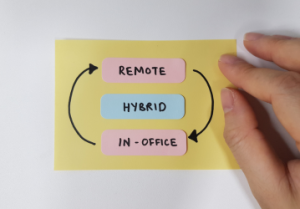 Unlocking UK Workplace Potential
Unlocking UK Workplace Potential
In the fast-paced world of UK business, the pursuit of productivity often overshadows the importance of workplace positivity. But what if the key to unlocking your team’s full potential lies in fostering a more positive work environment? The Gallup Global Emotions 2024 report offers compelling insights into this connection. Let’s explore how UK leaders can leverage the power of positive emotions to drive productivity and success.
The UK Productivity Puzzle: A Brief Overview
Before we dive into solutions, let’s consider the UK’s productivity landscape:
- UK productivity growth has stagnated since the 2008 financial crisis (Office for National Statistics)
- The UK lags behind other G7 countries in productivity by 15% (Department for Business, Energy & Industrial Strategy)
- 85% of UK employees are not engaged or actively disengaged at work (Gallup)
These statistics highlight a clear opportunity for improvement. Could fostering positive emotions be the missing piece of the UK productivity puzzle?
5 Key Strategies to Boost Productivity Through Positivity
Cultivate a Culture of Appreciation
Regular recognition can significantly boost both mood and productivity.
UK Application:
- Implement a peer-to-peer recognition programme
- Start team meetings with a round of appreciation
- Create a digital ‘Wall of Fame’ to celebrate achievements
Action step: Introduce a weekly ‘Appreciation Hour’ where team members share positive feedback.
Promote Work-Life Balance
Employees who feel their personal time is respected tend to be more productive during work hours.
UK Application:
- Offer flexible working hours or compressed work weeks
- Encourage the use of full holiday entitlements
- Implement a ‘right to disconnect’ policy outside of work hours
Action step: Review your current work-life balance policies and identify areas for improvement.
Foster Social Connections
Strong workplace relationships contribute to both happiness and productivity.
UK Application:
- Organise regular team-building activities (both in-person and virtual)
- Create interest-based groups or clubs within the company
- Designate social spaces in the office for informal interactions
Action step: Start a monthly ‘Random Coffee’ initiative, pairing employees for casual chats.
Invest in Personal Growth
Employees who feel they’re developing tend to be more positive and productive.
UK Application:
- Offer personalised learning and development plans
- Provide opportunities for cross-departmental projects
- Implement a mentoring programme
Action step: Launch a ‘Skill Share’ initiative where employees can teach each other new skills.
Create a Positive Physical Environment
The workspace itself can significantly impact mood and productivity.
UK Application:
- Maximise natural light in the office
- Introduce plants and green spaces
- Create varied work areas to suit different tasks and preferences
Action step: Conduct a workspace audit and make one improvement based on employee feedback.
Measuring the Impact of Positivity on Productivity
To ensure your strategies are effective:
- Track employee engagement scores alongside productivity metrics
- Measure absenteeism and presenteeism rates
- Monitor customer satisfaction as an indicator of employee performance
- Conduct regular pulse surveys on workplace happiness and productivity
The Business Case for Positivity
Investing in workplace positivity isn’t just about feeling good—it’s a smart business decision:
- Happy employees are 13% more productive (Oxford University)
- Companies with engaged employees outperform those without by 202% (Gallup)
- Positive work cultures are associated with higher levels of innovation (Journal of Applied Behavioral Science)
Imagine a workplace where:
- Monday mornings are met with enthusiasm rather than dread
- Creative solutions flow freely in an atmosphere of psychological safety
- Your company becomes known as a top employer, attracting the best talent
- Productivity soars as employees bring their full, energised selves to work each day
This isn’t a far-fetched dream. It’s the reality for UK companies that prioritise positivity alongside productivity.
 Your Next Steps: Leading the Positivity-Productivity Revolution
Your Next Steps: Leading the Positivity-Productivity Revolution
Ready to transform your workplace into a hub of positivity and productivity? Start with these actions:
- Assess your current workplace culture using anonymous surveys
- Identify the biggest mood-killers in your organisation and tackle them head-on
- Implement one new positivity-boosting initiative from this article
- Share your commitment to fostering a positive, high-performance culture with your team
Remember, creating a positive, productive workplace isn’t about enforcing happiness or ignoring challenges. It’s about fostering an environment where people feel valued, motivated, and empowered to do their best work.
Are you ready to lead the positivity-productivity revolution and unlock your team’s full potential? Your business results—and your employees—will thank you.

 Learning from High-Scoring Countries
Learning from High-Scoring Countries
 Your Next Steps: Leading the Positivity Revolution
Your Next Steps: Leading the Positivity Revolution In the ever-evolving landscape of the professional world, the concept of hybrid and virtual work has become more than just a trend; it’s a fundamental shift in the way teams operate. Working in resilience and leadership, I find myself at the intersection of two critical components for success in this new era: resilience and virtual work.
In the ever-evolving landscape of the professional world, the concept of hybrid and virtual work has become more than just a trend; it’s a fundamental shift in the way teams operate. Working in resilience and leadership, I find myself at the intersection of two critical components for success in this new era: resilience and virtual work.
 How to Cultivate Connection Amidst Distance:
How to Cultivate Connection Amidst Distance: